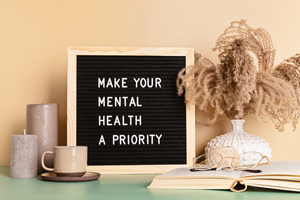Depression is a prevalent mental health condition that affects millions of people worldwide, according to the National Institute of Mental Health (NIMH). They explain that it can manifest in various forms, such as major depressive disorder, persistent depressive disorder, and seasonal affective disorder. While experiencing sadness is a normal part of life, the National Alliance of Mental Illness (NAMI) explains that feelings that persist for more than two weeks can indicate a deeper issue—depression.
Depression is a condition that can deeply affect one’s daily life, relationships, and overall well-being. It often brings about feelings of persistent sadness, fatigue, and trouble concentrating, along with a loss of interest in things that once brought joy. The good news is that therapy offers supportive methods to help individuals take back control of their lives. It equips them with valuable tools to manage their symptoms effectively. Reaching out for support is a crucial step in helping individuals navigate their challenges and begin their journey toward healing well-being.
What is depression therapy?
Depression therapy includes various approaches that help individuals manage symptoms and enhance well-being, according to the American Psychiatric Association. They explain that effective types are Cognitive Behavioral Therapy (CBT), which changes negative thought patterns; Behavioral Therapy, which promotes positive behaviors; and Exposure Therapy, for individuals facing anxiety related to depression by gradually confronting fears. These therapies aim to empower individuals with tools to control their depression, build resilience, and improve daily life. By tackling underlying issues, therapy can foster meaningful and lasting change.













